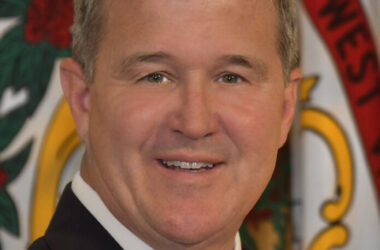A column by Phil Kabler, statehouse reporter for The Charleston Gazette
CHARLESTON, W.Va. — Back in the day, you knew an election year was coming around when the “Darrell McGraw enforces the law” billboards touting the attorney general’s consumer protection hotline starting popping up around the state.
That irked some legislators, particularly Delegate Kelli Sobonya, R-Cabell, who for 11 years introduced a bill that would make such taxpayer-funded self-promotion illegal.
This year, on the 11th try, the so-called “trinkets” bill passed the Legislature and became law. However, the legislation is so poorly and vaguely worded, that the state Ethics Commission – which is tasked with enforcing the law – struggled to come up with rules for what constitutes violations of the law.
Sobonya herself scoffed at the commission’s angst, stating, “It’s not rocket science, writing rules prohibiting elected officials from self-promoting.”
Ultimately, the commission went with the less-is-more approach, and rather than try to define every possible violation of the law, coming up with a rule that prohibits use of public funds for any material or communication “that has the primary intent or effect of promoting a public official.”
Which brings us to Thursday, when Tele-Town Hall of Arlington, Va. was the apparent low bidder, at $77,000, for a contract requested by current Attorney General Patrick Morrisey to provide the technical expertise to put on 35 telephone town halls, each capable of reaching 20,000 participants, according to the bid request.
According to the request for bids, the town halls will be geared to consumer protection outreach.
Among the features the winning bidder must provide, in addition to the capability of hosting as many as 20,000 participants for each call, is the ability to make automated robo-calls inviting citizens to participate in the live town halls; providing a summary of all outbound calls, including those who participated in the town hall, those who declined, and unanswered calls; and providing a list of town hall participants, with names, addresses and phone numbers. The vendor also has to provide a toll-free number for those who wish to call in directly to the town halls.
• • •
Depending on one’s perspective, the telephone town halls are either a great public service, or a more technically sophisticated version of the old election-year consumer protection billboards.
(“Hello, this is Attorney General Patrick Morrisey. Thanks for taking time to chat about our office’s consumer protection services. Oh, and by the way, I’m running for re-election in November…”)




